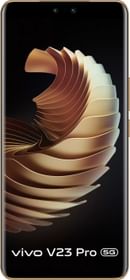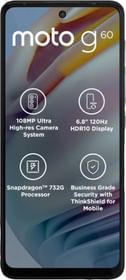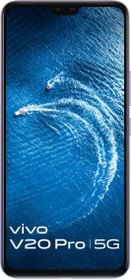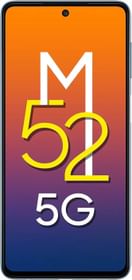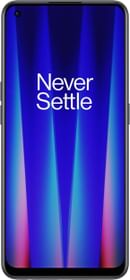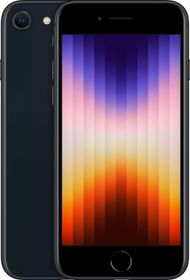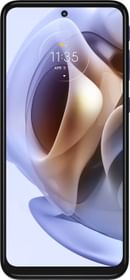Infocus Epic 1 highlights the presence of a deca-core CPU. At the time of writing, it is also the most affordable 10 core option available around. This alludes to a phone that can satiate demanding users looking for something between Rs. 10,000 and Rs. 15,000. Since core excesses don’t necessarily mandate blazing fast performance or a meaningful holistic experience, let’s dive deeper and scrutinize all aspects of the Infocus Epic 1 in our full review. Let’s talk about the specs first.

Infocus Epic 1 Specs and Features:
- It’s powered by Deca-Core Helio X20 MT6797M(Dual A72 2.1GHz + Quad A53 1.9GHz + Quad A53 1.4GHz)
- There is 3GB RAM and 32GB internal storage (Approx 24GB free at user end), You can add up to 128GB MicroSD card too (Hybrid slot)
- Android Marshmallow based InLife UI, you won’t be seeing much of Marshmallow here
- 16MP F2.0 Hybrid PDAF Main Camera, dual-color LED flash
- 8MP F1.8 82 Degrees Wide View Angle Front Camera
- 3000mAh Battery
- Measures 153mm x 76mm x 8.4mm and weighs 160grams
- Accepts dual Nano SIM Cards (or one Nano SIM and one MicroSD card)
- Connectivity options include Bluetooth 4.1,802.11 a b/g/n/ac(2.4/5GHz),GPS/AGPS+GLONASS
- Sensors used: Ambient Light sensor, Proximity sensor, Accelerometer, E-compass, Gyroscope, magnetic sensor
- Others: Fingerprint sensor, Smart Amplifier, IR remote control, USB 2.0 type C for Quick Charge
Infocus Epic 1 Detailed Specs and Lowest Price
Design and Build
The Epic 1 is a metal unibody phone that manages to look and feel different and slicker than other metal unibody alternatives in the same class.

The circular earpiece is bound to draw polarizing reviews, but the combination of soft gold brushed metal back and white fascia should work for most. There are no flexes or creaks and the handset is pretty solidly built.
As for ergonomics, the metal back arcs from edge to edge to facilitate comfortable handling. The handset doesn’t feel heavy and is easy to wield, even with one hand.
The volume rocker is a tad inaccessible owing to its placement closer to the top right corner. Speaker grill and USB Type-C port are present on the bottom, and the Audio Jack and IR Blaster are mounted on the top edge.

There is more than generous bezel around the display which makes Epic 1 cover a wider footprint than what you would expect from a standard 5.5-inch phone. And since the navigation buttons are on-screen, the unconventionally broad chin below the display feels mildly off-putting.
At the end of the day, Infocus Epic 1 scores well on the design front. The slim form factor and the neat brushed metal back door make it suitably fancy.
Also Read: Best Smartphones With 4GB RAM Under 20,000 INR
Display
Infocus Epic 1 employs a 5.5-inch Full HD panel that’s sharp and can get plenty bright for comfortable outdoor viewing. By default, the display temperature and colors aren’t quite accurate. Most people should find the punchy, albeit over-saturated color tones to their linking. But the bluish whites and Grayish blacks noticeably weigh down multimedia experience.

You can effectively change color temperature from the settings and can also benefit from a customizable eye-protection mode. We have a penchant for warm color tones and managed to tune it to our individual preferences.
The uneven black border lined around the display to camouflage wide bezel felt hideous at the start, but this is something we got used to after a few days of usage.
The display on the Epic 1 won’t draw your breath away, but unless you are very picky about your phone panels, it won’t be a deal breaker either. And yes, it is protected by an unspecified gen Gorilla Glass layer.
Performance and Software
As we have mentioned earlier, the star feature of Epic 1 is its deca-core processor. The Helio X20 SoC that powers the handset combines 10 Cortex A53 cores arranged in three clusters. This arrangement isn’t as harsh on your battery as the ghastly true octa-core constructions which we used to see in previous generation MediaTek chips.
The chipset is indeed powerful and the high-end games that we managed to download on the handset ran extremely well, without any lag whatsoever.

With about 15 to 20 minutes of gaming, the temperature rose to 42-degree celsius. It runs warm and we did notice a few frame drops while playing games after the temperature peaked. Overall, the gaming experience with Infocus Epic 1 was quite satisfying. If you are essentially buying this to play games you shouldn’t be disappointed.
The same can not be said about the software, though. The Android Marshmallow based InLife UI on Infocus Epic 1 doesn’t feel very well optimized. There are random bugs and stutters which leave a sour taste. For instance, the camera shutter kept beeping even when you turn all sounds off, and the Asphalt 8 took seven to eight attempts to download.
There is no app drawer. A frequently used app folder on the home screen helps. Rampaging through the apps scattered across several home screens, we couldn’t find any preloaded app for IR blaster. You will have to download one yourself. Good thing is that there aren’t many preloaded apps on the phone.
Camera
The camera performance is another area where Infocus Epic 1 falters. The primary rear camera is very inconsistent. You can manage some good shots in natural day light, but many a times highlights are overexposed. Also, the shutter lag ruined many a shots, more so in low lighting. The camera app also feels archaic.

The camera used on InFocus Epic 1 is very passable one and won’t be giving it an edge over the existing competition. In comparison, the selfie camera does a better job.
Battery, Audio, and Others
The 3000mAh battery on Infocus Epic 1 lasted for 1 – 1.5 days for us with moderate usage. A significant proportion of battery juice is lost when the handset is on standby, which again hints at unoptimized software being the culprit.

The audio from the loudspeaker is fairly loud, but quality of the output isn’t much to write home about. The fingerprint sensor on the rear isn’t by far the fastest one around, but is positioned well and comes in handy (for secure unlocking, clicking selfies, etc. ). Call quality on our review unit is excellent. The circular ear piece on the front is substantially loud and clear.
Also Read: Everything You Should Know Before Buying A Kindle Paperwhite
Who should buy it
The Infocus Epic 1 comes with a powerful chipset, looks the part and includes added perks like the fingerprint reader and IR sensor to control home appliances. On the other hand, the camera performance and software will let you down.

If you are looking for some specs bragging rights, don’t care much about the camera quality, and want an affordable phone that can comfortably handle your gaming needs, Epic 1 is worth considering.
Pros
- Great Design
- Powerful performance
- IR blaster and Fingerprint sensor
Cons
- Camera performance not up to the mark
- Software experience feels unrefined















